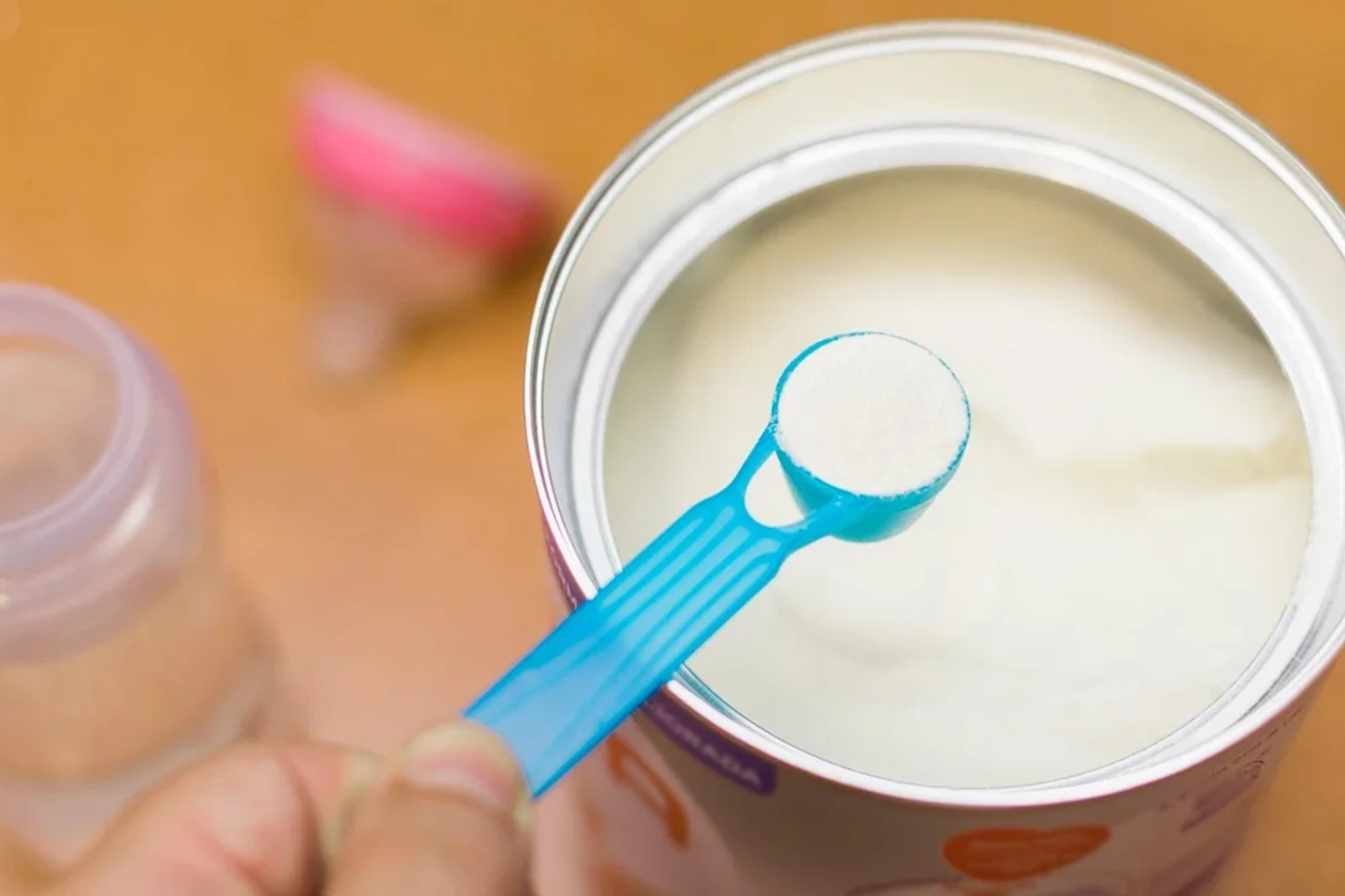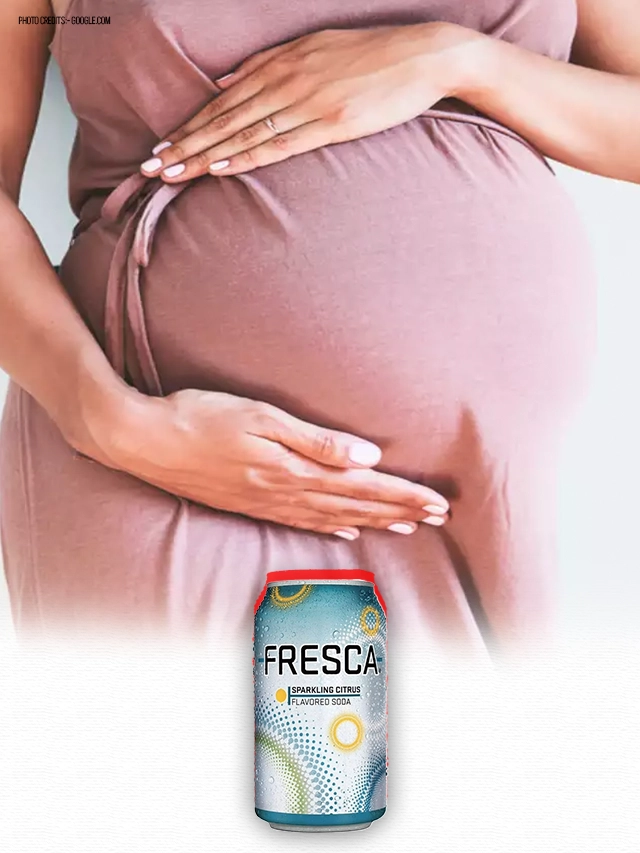
HEALTH BLOG
Can You Drink Fresca While Pregnant?
-
Rahul Priydarss
Is a common question for expectant mothers who enjoy this citrus-flavored, calorie-free soda Can You Drink Fresca While Pregnant?. While Fresca contains artificial sweeteners like aspartame and sucralose, both of which are FDA-approved, moderation is key during pregnancy. Consuming Fresca occasionally is considered safe, but it’s essential to consult your healthcare provider to ensure it aligns with your specific pregnancy needs. This blog post explores the safety of Fresca, its ingredients, and offers healthier alternatives to keep you and your baby safe throughout pregnancy. Stay informed for a healthy pregnancy!
Introduction to Can You Drink Fresca While Pregnant:
Pregnancy brings with it a lot of changes, especially regarding what you can and can’t consume. From certain types of fish to alcohol, many everyday foods and drinks need to be reconsidered to ensure the safety of both mother and baby. One such drink that often raises questions is Fresca, a popular soda that offers a refreshing, calorie-free alternative to sugary drinks. With no caffeine, it might seem like a perfect drink for expectant mothers, but there are a few things to consider before you crack open a can.
Fresca, known for its citrus flavor and zero-calorie formula, uses artificial sweeteners like aspartame and sucralose to achieve its taste. While these ingredients are approved by health authorities such as the FDA, their impact on pregnant women and their babies remains a topic of discussion. Many expecting mothers wonder: is it truly safe to drink Fresca while pregnant, or should it be avoided like many other processed foods and drinks? In this guide, we’ll dive into the science, the facts, and the expert advice around consuming Fresca during pregnancy, so you can make the most informed decision.
What Is Fresca:
Fresca has been around since the 1960s and is marketed as a zero-calorie, citrus-flavored soda. Its refreshing taste and lack of calories have made it a popular choice for people looking to cut back on sugar, especially those trying to lose weight or manage conditions like diabetes. Fresca stands out from other sodas because it doesn’t contain any caffeine, making it a tempting option for people who want to avoid the jitteriness or sleep disturbances that come with caffeinated beverages.
The absence of sugar in Fresca is compensated for by the use of artificial sweeteners, primarily aspartame and sometimes sucralose. These ingredients give Fresca its signature sweetness without the calories. But for pregnant women, it’s these artificial sweeteners that bring up the biggest question: Are they safe for you and your baby?

Table of Contents
What Are the Key Ingredients in Fresca:
To better understand whether Fresca is safe to drink during pregnancy, it’s crucial to break down its key ingredients. Fresca is marketed as a diet soda, meaning it doesn’t contain any sugar or calories. Instead, it relies on artificial sweeteners to give it that familiar sweet taste. Here are the main ingredients you’ll find in a can of Fresca:
- Carbonated Water: Like most sodas, Fresca is primarily made of carbonated water, which is generally considered safe during pregnancy. The fizziness can even help some women who experience nausea or digestive issues during pregnancy.
- Citric Acid: This is used to add a tangy flavor to Fresca. Citric acid is a common ingredient in many sodas and foods and is safe for consumption during pregnancy.
- Aspartame: This is the most talked-about ingredient in Fresca when it comes to pregnancy. Aspartame is an artificial sweetener used in many diet sodas and sugar-free products. While the FDA has approved aspartame as safe, including during pregnancy, it’s still advised to consume it in moderation. There are also specific conditions like phenylketonuria (PKU) where aspartame should be avoided entirely.
- Potassium Citrate: This ingredient helps balance acidity in sodas. It is commonly found in many drinks and food products and poses no known risk to pregnant women.
- Natural Flavors: Fresca includes natural citrus flavors to enhance its taste. These are generally safe during pregnancy.
- Benzyl Alcohol (preservative): Fresca contains small amounts of preservatives to ensure freshness and extend shelf life. These preservatives are deemed safe for consumption, but some may want to limit exposure to artificial preservatives, especially during pregnancy.
Ingredients Found in Fresca:
Here’s a table of the common ingredients found in Fresca, though the exact quantities are typically proprietary and not publicly disclosed. However, I’ll provide a general structure to present the ingredients in table format:
| Ingredient | Quantity |
|---|---|
| Carbonated Water | Not specified |
| Citric Acid | Not specified |
| Aspartame | 180 mg per 12 fl oz can |
| Potassium Citrate | Not specified |
| Natural Flavors | Not specified |
| Benzyl Alcohol (Preservative) | Trace amount |
| Sucralose (in some variations) | Not specified |
Note: Fresca is calorie-free, and the exact amount of each ingredient is generally not listed on the can or nutritional information labels.
Is Aspartame Safe During Pregnancy:
The main point of concern for pregnant women drinking Fresca is the use of aspartame, an artificial sweetener that has been extensively studied. Many studies conclude that aspartame is safe for consumption, even during pregnancy, but it’s essential to understand both the scientific consensus and potential caveats.
Aspartame is broken down in the body into phenylalanine, aspartic acid, and methanol, which are then processed by the liver. All of these are naturally occurring substances in many foods we eat, like meat, eggs, and fruits. In moderate amounts, they are not harmful. However, some people with a genetic disorder known as phenylketonuria (PKU) cannot metabolize phenylalanine effectively. If you have PKU or your baby is at risk for this condition, you should avoid aspartame entirely.
For the average pregnant woman, moderate consumption of aspartame is considered safe. The FDA has set the acceptable daily intake (ADI) for aspartame at 50 mg per kilogram of body weight, which translates to around 19 cans of diet soda per day for a 60 kg woman. This is well above the amount most people would typically consume.
However, some doctors recommend that pregnant women limit their intake of artificial sweeteners, including aspartame, to err on the side of caution. While there is no conclusive evidence linking aspartame to pregnancy complications, the long-term effects of frequent consumption during pregnancy are not fully understood. This is why many health professionals advise moderation.
Can Artificial Sweeteners Affect Pregnancy:
Pregnancy is a time when many women become extra cautious about what they consume, and with good reason. Although artificial sweeteners like aspartame and sucralose are deemed safe by most health organizations, some studies suggest that consuming large amounts of artificially sweetened beverages during pregnancy could have potential risks.
A 2016 study published in the journal JAMA Pediatrics found that high consumption of artificially sweetened beverages during pregnancy was associated with a higher risk of preterm birth. However, the study emphasized that further research was needed to confirm these findings. It is also important to note that the study did not isolate aspartame specifically but looked at artificial sweeteners as a group.
Another concern with artificial sweeteners is their potential effect on metabolism and weight gain. Some research suggests that artificial sweeteners may interfere with the body’s natural ability to regulate calorie intake, potentially leading to weight gain. While this might not be a direct issue for pregnancy, maintaining a healthy weight is crucial for both the mother’s and the baby’s health.
In summary, while there’s no definitive evidence that artificial sweeteners like those in Fresca are harmful during pregnancy, it’s wise to limit your intake to avoid potential risks.
What About Caffeine in Fresca:
One of the significant advantages of Fresca is that it’s caffeine-free. Caffeine is something many doctors recommend pregnant women limit, as high levels of caffeine intake have been linked to various pregnancy complications, including low birth weight, premature birth, and miscarriage.
Pregnant women are generally advised to consume no more than 200 mg of caffeine per day, which is about the amount in a 12-ounce cup of coffee. Fresca, being caffeine-free, can be a good alternative to other sodas or caffeinated beverages, especially if you’re looking to cut back on your caffeine intake during pregnancy.
However, while Fresca doesn’t add to your daily caffeine quota, the artificial sweeteners and other ingredients still warrant careful consideration.
Can You Drink Fresca While Pregnant:
Yes, you can drink Fresca while pregnant, but moderation is crucial due to its artificial sweeteners like aspartame and other ingredients. Consulting with your healthcare provider is always recommended to ensure you make the best choices for you and your baby.

How Much Fresca Is Safe to Drink During Pregnancy:
The general rule of thumb when it comes to Fresca during pregnancy is moderation. Consuming a can or two of Fresca occasionally is unlikely to pose any significant risks to you or your baby. However, drinking it daily or in large quantities may not be the best choice due to its artificial sweeteners and preservatives.
Experts suggest that the safest approach is to limit your consumption of all artificially sweetened beverages during pregnancy. While Fresca is a good option compared to sugary sodas and caffeinated drinks, it shouldn’t replace healthier beverages like water, herbal teas, or natural fruit juices.
If you’re craving something fizzy, try to incorporate sparkling water or infused water with natural fruit flavors into your diet. This way, you can enjoy the refreshing sensation without the added concern of artificial ingredients.
Are There Any Safer Alternatives to Fresca:
If you love the fizz and flavor of Fresca but are concerned about the artificial ingredients, there are several healthier alternatives you can try during pregnancy. Here are a few options that provide the carbonation and flavor you crave, without the added artificial sweeteners:
- Sparkling Water: Brands like LaCroix, Perrier, and Spindrift offer naturally flavored sparkling waters that are free of calories, sweeteners, and preservatives. These can be a great substitute for Fresca and other diet sodas.
- Infused Water: You can make your own flavored water by adding fresh fruits like lemon, lime, cucumber, or berries to plain water. This not only provides a refreshing taste but also keeps you hydrated, which is essential during pregnancy.
- Herbal Teas: Some herbal teas can be enjoyed iced and carbonated to give a similar fizzy sensation. Just make sure to check with your doctor about which herbs are safe for pregnancy, as some herbal teas can have contraindications for pregnant women.
- Homemade Lemonade: A simple homemade lemonade made with fresh lemons, water, and a natural sweetener like honey or agave syrup can be a delicious and healthier alternative to store-bought sodas.
What Do Experts Say About Drinking Fresca During Pregnancy:
When it comes to Fresca and pregnancy, most experts agree that moderation is key. The American Pregnancy Association and other health authorities state that artificial sweeteners like aspartame and sucralose are generally safe for pregnant women, as long as they are consumed in reasonable amounts.
However, some doctors may advise caution, particularly for women who are already consuming a lot of processed foods or drinks with artificial ingredients. They may recommend limiting artificially sweetened beverages and opting for more natural options whenever possible.
Ultimately, the best approach is to discuss your dietary choices with your healthcare provider. They can offer personalized guidance based on your unique health circumstances and pregnancy needs.
FAQs about Can You Drink Fresca While Pregnant:
A1: Yes, you can drink Fresca in moderation during pregnancy, but it’s best to consult your doctor first.
A2: Fresca is generally considered safe, but it contains artificial sweeteners like aspartame, so limit your intake.
A3: No, Fresca is caffeine-free, making it a good option if you want to avoid caffeine during pregnancy.
A4: Fresca contains carbonated water, citric acid, aspartame, potassium citrate, and natural flavors.
A5: Yes, you can try sparkling water, infused water, herbal teas, or homemade lemonade as healthier alternatives.

-Please remember, to always consult with healthcare professionals or Doctors for personalised advice related to medical conditions.
Conclusion:
In conclusion, you can enjoy Fresca in moderation during pregnancy, but it’s essential to be mindful of the artificial sweeteners and other ingredients. While the FDA and other health authorities deem aspartame and sucralose safe for consumption, the long-term effects of frequent intake are not fully understood, especially during pregnancy. Therefore, it’s best to limit your intake of artificially sweetened beverages like Fresca and opt for healthier alternatives when possible.




